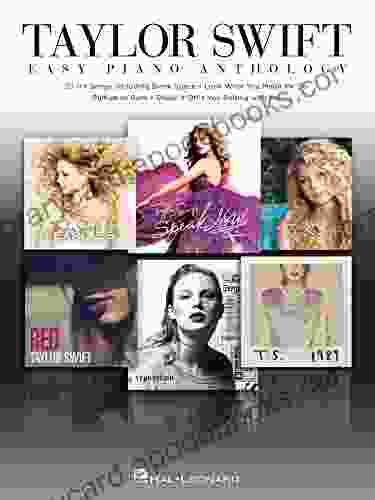Where Does Money Come From? Uncovering the Secrets of Currency

4.6 out of 5
| Language | : | English |
| File size | : | 2286 KB |
| Text-to-Speech | : | Enabled |
| Screen Reader | : | Supported |
| Enhanced typesetting | : | Enabled |
| Word Wise | : | Enabled |
| Print length | : | 184 pages |
| Lending | : | Enabled |
The Origins of Money: A Journey Through Time
Money has played a pivotal role in human societies for millennia. From the barter systems of ancient civilizations to the sophisticated financial instruments of today, the evolution of currency has shaped the course of history.
In the early days, goods and services were exchanged directly through barter. However, as societies grew more complex, the need for a medium of exchange that could facilitate transactions across time and distance became apparent.
One of the earliest forms of money was the shekel, used by the ancient Babylonians around 3000 BC. Made of silver, the shekel served as a standardized unit of value, enabling easier trading and record-keeping.
Over time, various materials were used as currency, including cattle, grain, precious metals, and even salt. The use of precious metals, such as gold and silver, became particularly widespread due to their durability, scarcity, and universal recognition.
The Evolution of Monetary Systems
The concept of money evolved alongside the development of societies. In the Middle Ages, coins became the dominant form of currency, while paper money emerged in China during the Tang Dynasty in the 7th century AD.
The invention of the printing press in the 15th century revolutionized the production of paper money, making it more accessible and widely used. The gold standard, which tied the value of currency to a specific amount of gold, became prevalent in the 19th and early 20th centuries.
However, the gold standard faced challenges during periods of economic instability. The Great Depression of the 1930s led to the suspension of the gold standard in many countries, and the post-World War II Bretton Woods Agreement established a new international monetary system based on the US dollar.
Modern Monetary Systems: Complexity and Innovation
In the decades that followed, the global financial system underwent significant transformations. The abandonment of the gold standard gave way to fiat currencies, whose value is backed by the trust in the issuing government.
The development of electronic payment systems, such as credit cards and online banking, revolutionized the way money is transferred and used. The rise of cryptocurrencies, such as Bitcoin, introduced new decentralized and digital forms of currency.
Today, the monetary system is a complex and interconnected web of financial institutions, instruments, and regulations. Central banks play a crucial role in managing inflation, interest rates, and the overall stability of the financial system.
The Social and Cultural Significance of Money
Beyond its economic functions, money has profound social and cultural implications. It serves as a symbol of wealth, status, and power. It shapes our spending habits, investment decisions, and perceptions of value.
Money can also be a source of inequality and social divisions. Access to financial resources can determine opportunities for education, healthcare, and economic mobility. Societies grapple with the challenges of ensuring financial inclusion and reducing economic disparities.
: The Enduring Enigma
The question of where money comes from is a multifaceted and enduring enigma. From its humble origins in barter to the sophisticated financial systems of today, money has evolved alongside human ingenuity and the complexities of our societies.
Understanding the nature of money is crucial for financial literacy, economic decision-making, and navigating the ever-changing landscape of our financial world. As technology and innovation continue to shape the future of currency, the secrets of money will continue to captivate and intrigue generations to come.
4.6 out of 5
| Language | : | English |
| File size | : | 2286 KB |
| Text-to-Speech | : | Enabled |
| Screen Reader | : | Supported |
| Enhanced typesetting | : | Enabled |
| Word Wise | : | Enabled |
| Print length | : | 184 pages |
| Lending | : | Enabled |
Do you want to contribute by writing guest posts on this blog?
Please contact us and send us a resume of previous articles that you have written.
 Book
Book Novel
Novel Page
Page Chapter
Chapter Text
Text Story
Story Genre
Genre Reader
Reader Library
Library Paperback
Paperback E-book
E-book Magazine
Magazine Newspaper
Newspaper Paragraph
Paragraph Sentence
Sentence Bookmark
Bookmark Shelf
Shelf Glossary
Glossary Bibliography
Bibliography Foreword
Foreword Preface
Preface Synopsis
Synopsis Annotation
Annotation Footnote
Footnote Manuscript
Manuscript Scroll
Scroll Codex
Codex Tome
Tome Bestseller
Bestseller Classics
Classics Library card
Library card Narrative
Narrative Biography
Biography Autobiography
Autobiography Memoir
Memoir Reference
Reference Encyclopedia
Encyclopedia Matthew T Bolland
Matthew T Bolland Amanda Shelley
Amanda Shelley William E Lewis
William E Lewis Hindol Sengupta
Hindol Sengupta Dr G J Sabongi
Dr G J Sabongi R A Bowen
R A Bowen Andrea Colombari
Andrea Colombari Martin Bernal
Martin Bernal Amelia Addler
Amelia Addler George Macdonald
George Macdonald Kenny Chesney
Kenny Chesney Eric J Wittenberg
Eric J Wittenberg Sandy Mitchell
Sandy Mitchell Ameet Singh
Ameet Singh Marjorie Bowen
Marjorie Bowen Ben Halls
Ben Halls Amy Clampitt
Amy Clampitt Ami J Abou Bakr
Ami J Abou Bakr Daniel Donoghue
Daniel Donoghue Matthew Pressman
Matthew Pressman
Light bulbAdvertise smarter! Our strategic ad space ensures maximum exposure. Reserve your spot today!
 Harvey HughesFollow ·8.5k
Harvey HughesFollow ·8.5k Andy HayesFollow ·19.2k
Andy HayesFollow ·19.2k Joseph ConradFollow ·12.7k
Joseph ConradFollow ·12.7k Cristian CoxFollow ·6.2k
Cristian CoxFollow ·6.2k Easton PowellFollow ·2.2k
Easton PowellFollow ·2.2k Maurice ParkerFollow ·16.6k
Maurice ParkerFollow ·16.6k Brian WestFollow ·15.1k
Brian WestFollow ·15.1k Federico García LorcaFollow ·11.2k
Federico García LorcaFollow ·11.2k

 Roald Dahl
Roald DahlImmerse Yourself in a Mesmerizing Tapestry of Creativity:...
Prepare to be captivated by "Spectra," an...

 Clarence Brooks
Clarence BrooksUnleash Your Inner Taylor with Red Piano Vocal Guitar:...
Embrace the Red Era...

 Jeffrey Hayes
Jeffrey HayesUnlock Your Child's Academic Potential: A Comprehensive...
In today's rapidly changing...

 William Golding
William GoldingBrave Elizabeth: A Captivating Tale of Resilience and...
Immerse Yourself in a Riveting Historical...

 Curtis Stewart
Curtis StewartUnveiling the Heartfelt Melodies of Taylor Swift: A...
Step into the enchanting world of Taylor...
4.6 out of 5
| Language | : | English |
| File size | : | 2286 KB |
| Text-to-Speech | : | Enabled |
| Screen Reader | : | Supported |
| Enhanced typesetting | : | Enabled |
| Word Wise | : | Enabled |
| Print length | : | 184 pages |
| Lending | : | Enabled |














